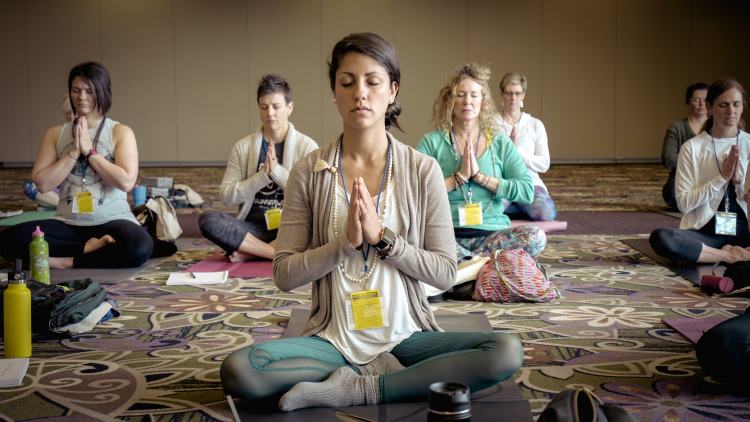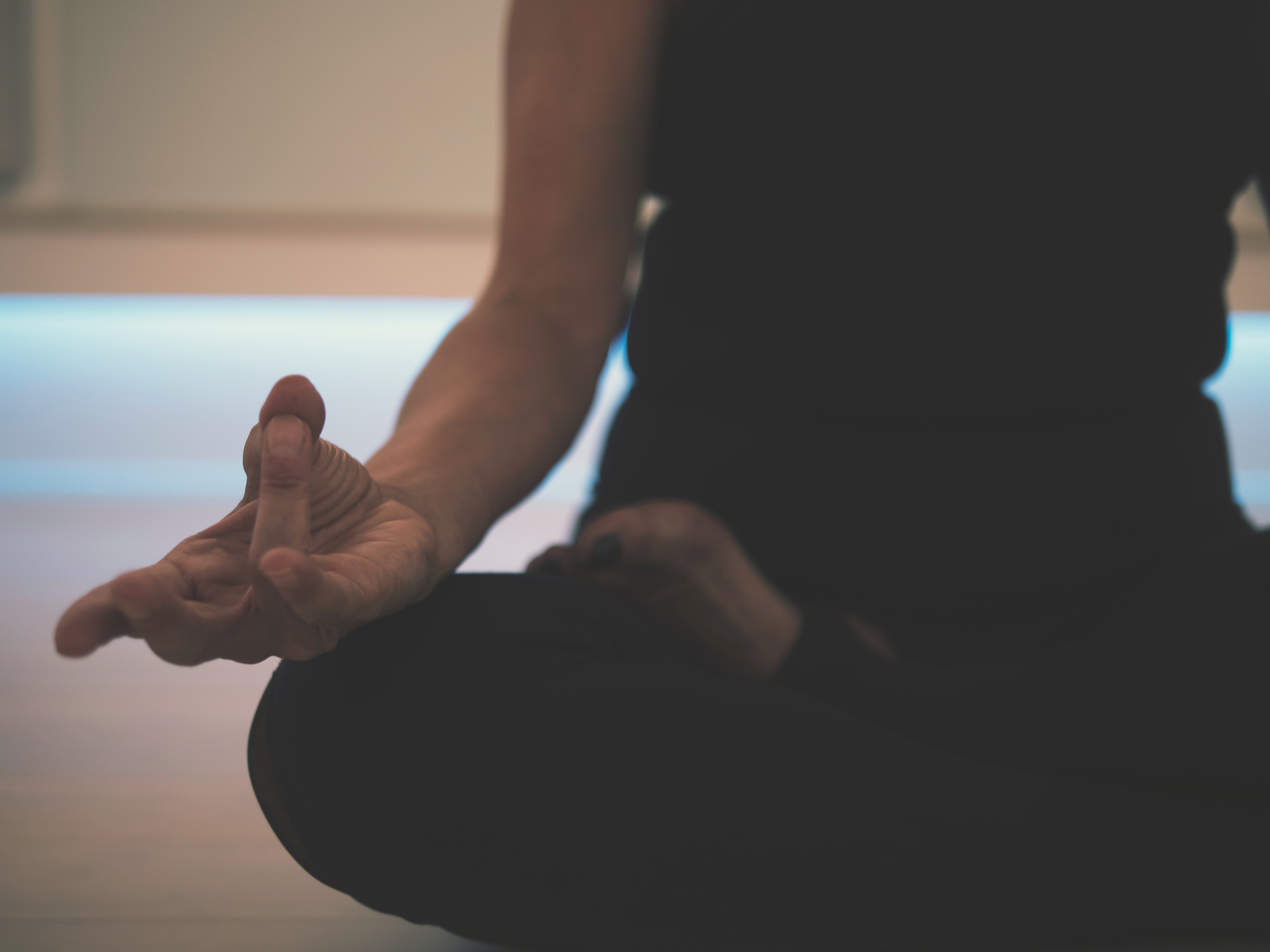Ancient Meditation Practices Thriving in Confinement

At the beginning of AUP's fall 2020 semester, many students were not sure what classes were going to be like. Then, a couple of months in, France went back into quarantine and they had to start attending online classes again. Now, with all this time spent at home, students are looking for a way to relieve stress and boredom. Meditation is a practice that a few have picked up, and it is one many are at least willing to try.
The state of the world never seems ideal, but the state of your body and mind is within your control. The practice of meditation is old — very old. But a precise date of the origin of its practice is hard to pinpoint. The earliest known evidence dates back to 1500 BC India and some forms reflect beginnings in China, Japan and Greece. Within the last 100 years, meditation has become a more unified practice across the globe.
Image Credit: Unsplash/JD Mason.Meditation as we know it today is a way to strengthen a person's awareness of the connection between their body and their mind. How their emotions influence their thoughts, how to purge negative feelings and how to improve mental faculties are some of its crucial lessons. As meditation is more of an individual activity, many people look to different apps and to the Internet to help guide them. In March, during what many experienced as the first COVID-19 lockdown, the number of people who downloaded mindfulness apps soared, up 25 percent from the beginning of the year.
Caroline Sjerven, a senior at AUP who practices the art of yoga nidra, says that, "Meditation has become a way to relax my body. Yoga nidra is special in that it can help a person feel as if they've gotten a good nap without actually sleeping." Yoga nidra, also called yogic sleep, is a state of meditation where a person lays on the floor and listens to an instructor talk to them. It has been described as hypnotic, and people have also reported going into deep states that feel like a space between waking and sleeping.
Out of 20 AUP students surveyed, 15 students have followed a guided meditation before. Guided meditation is, as it sounds, listening to an instructor guide you through an abstract mental process meant to help with mindfulness and other meditative states. It is perhaps what most students think of when they hear the term "meditation," but it is not the only form out there. 18 out of the 20 AUP students say they are willing to try new forms of meditation over the course of confinement. The range of meditation available to students is quite high, from mindfulness training through apps such as Plum Village to classes available for free on Insight Timer which can help teach people about the basics of meditation. Platforms such as Youtube and Spotify also offer many mediation courses, music and guidance.
Image Credit: plumvillage.app.AUP students aren't the only people looking to increase their meditative practices. Fitbit recently released data showing an increase of 2,900 percent increase in meditative practices from last year. In Great Britain, that percentage increased by 7,350 percent. This suggests that many people, due to the current state of the world, are turning to meditation as a way to personally deal with mental health.
"I don't meditate often, but lately I've been trying to do more," says Elizabeth Cleveland, another senior at AUP. "With the quarantines, the issues facing the US election, and now dealing with the end of the semester, I find it helpful to take just a couple minutes every day to help my mind focus on work I need to get done." She's not the only one — 36 percent of surveyed AUP students say they practice meditation at least once or twice a week.
Meditation is not hard to do. For stressed AUP students, it's as simple as going online. And just taking five minutes out of your day can help to improve focus and reduce stress. More and more AUP students seem willing to try, which will not only help given their current situation but will build healthy habits for the future.









